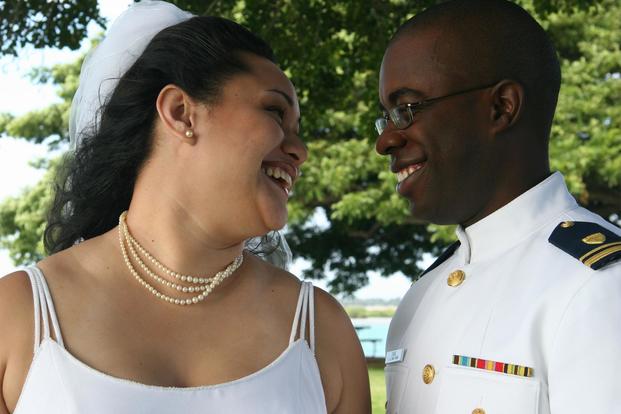A court case that challenges the authority of the Feres doctrine in cases of military medical malpractice was not among the 150-plus petitions rejected by the U.S. Supreme Court on Monday.
The Feres doctrine is the controversial 69-year-old court ruling that prohibits service members from suing the federal government for injuries deemed incidental to military service.
The case, Daniel v. United States, was to be distributed to the Supreme Court justices for conference on March 29, meaning they were set to discuss it Friday and to announce their decision to accept or deny it on Monday.
But when the order was released this morning, the court had accepted one new case and rejected hundreds of others. The Daniel case was not among the rejections.
A spokeswoman for Daniel's attorney said he awaits word as to whether the case is being rescheduled for conference.
Attorneys who favor reconsideration of the Feres doctrine say the delay offers hope that the "Supreme Court has taken an immediate interest in revisiting" the ruling.
Related:
- Controversial Military Malpractice Policy May be Closer to Overturn than Ever
- US Supreme Court Asks for Government Response in Feres Case
"It's absolutely critical for the Supreme Court to revisit this issue because it is unfair to our service members," said Lloyd Bell, an Atlanta-based malpractice attorney and former major in the Army Judge Advocate General Corps.
"This is real injustice to military personnel because what it says essentially is that U.S. military personnel are not entitled to the same rights that civilians are entitled to when they've been harmed by medical malpractice,” he added.
The plaintiff, Walter Daniel, is a former Coast Guard officer whose wife, Rebekah "Moani" Daniel died during childbirth at Naval Hospital Bremerton, Washington, in March 2014. The lawsuit alleges that the doctors failed to provide prompt medical treatment when Daniel, a Navy lieutenant who worked as a nurse at the hospital, began bleeding excessively. She died four hours after giving birth.
As a result of the Feres ruling -- a decision that encompasses three separate court cases dating back to 1950 -- U.S. military personnel can only sue the government in limited circumstances under the Federal Tort Claims Act.
They cannot sue for injuries sustained on active duty or resulting from the negligence of other military personnel -- a prohibition seen as vital for protecting those who make crucial battlefield decisions, including operational commanders and combat doctors and medics.
But Feres extends beyond the battlefield. Troops can't sue the government for medical or legal malpractice.
Bell said changing the ruling to allow service members recourse in their own medical malpractice cases would address several issues: it would give them the same rights afforded family members harmed in the same military medical facilities, and it would hold military physicians accountable, improving safety for other patients.
"If people have immunity, there's less incentive to practice to the standard of care if you are not faced with potential financial consequences of malpractice," Bell said.
Bell said while he has professional concern for the Daniel case, his interest is also deeply personal: his brother Noland Bell, a veteran of Iraq and Afghanistan who served in the Army National Guard, died of Stage IV lung cancer after physicians failed to do initial tests when he first exhibited symptoms.
"My personal experience when I was active duty is the quality of physicians in the overall hospitals was very good," he said. "But my brother's case was completely preventable if they had diagnosed him a year and a half earlier when he first exhibited symptoms. There needs to be a recourse, a consequence, to ensure these things don't happen again."
-- Patricia Kime can be reached at Patricia.Kime@Military.com. Follow her on Twitter at @patriciakime.











